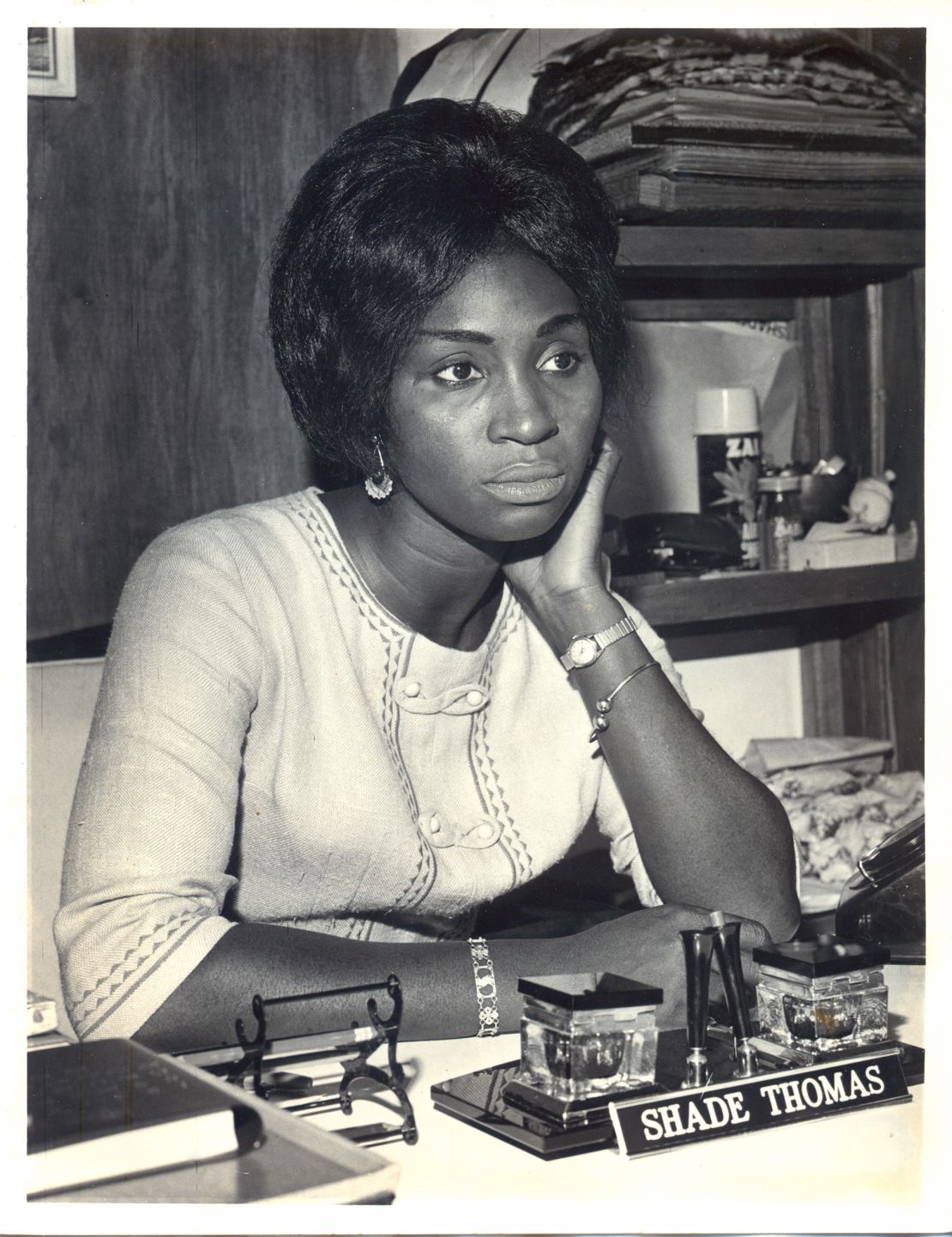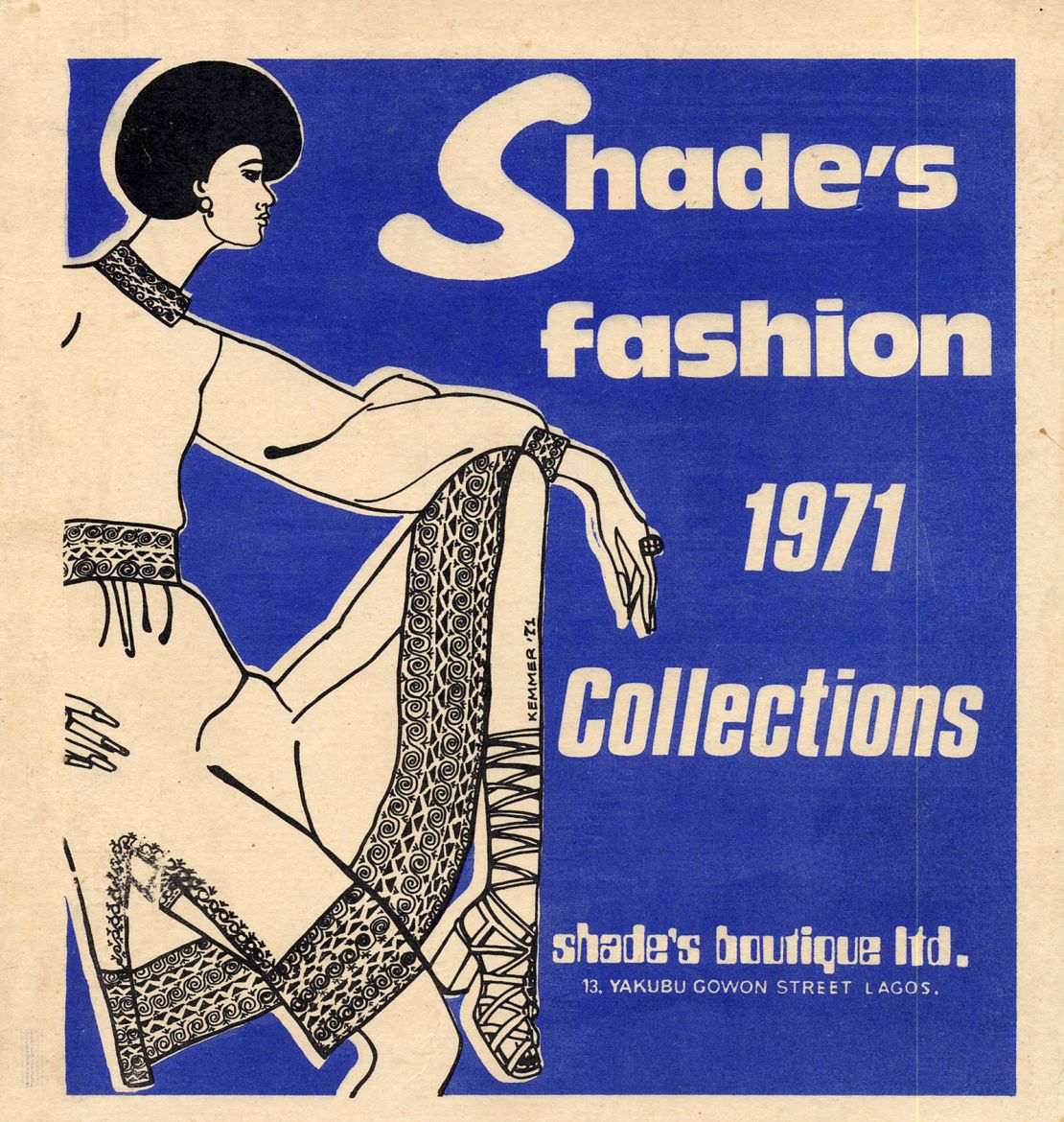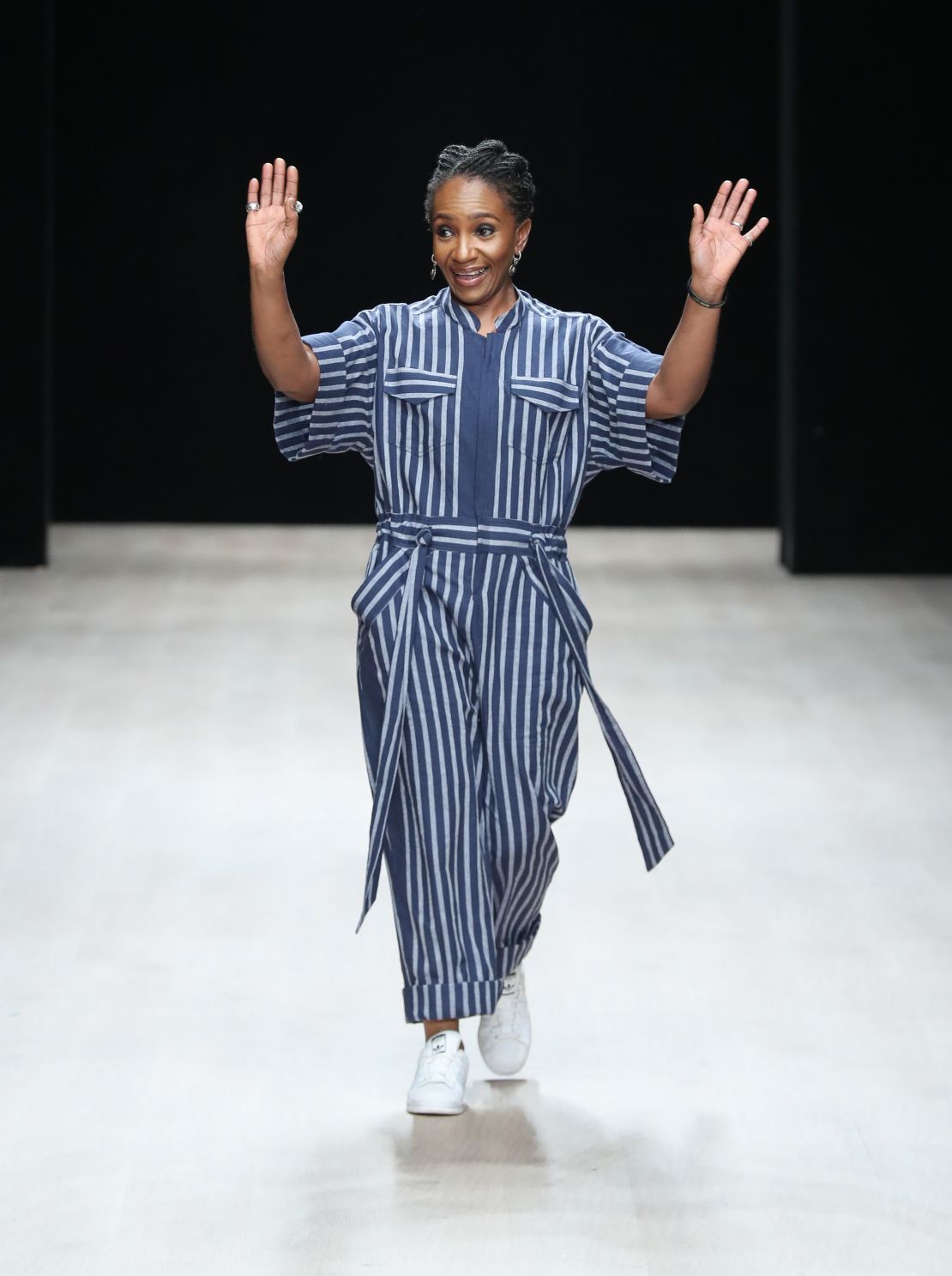She’s been called one of Africa’s most important designers, and a pioneering figure in Nigerian fashion.
Now, Folashade “Shade” Thomas-Fahm is among the names being celebrated by London’s Victoria and Albert (V&A) Museum. Set to open next year, its Africa Fashion exhibition will commemorate past and contemporary African designers including Mali’s Chris Seydou and Ghana’s Kofi Ansah.
Often described as the country’s first modern designer, Thomas-Fahm is a former president of the Fashion Designers Association of Nigeria and received a lifetime achievement award at Arise Magazine’s Fashion Week in Lagos in 2011.
But an illustrious career in fashion wasn’t on the cards when she first moved from Lagos to London in 1953. Initially planning to train as a nurse, she recalls changing her mind after seeing shop window displays as she walked around the city. “I knew there and then that fashion was my calling,” she said.

Gaining independence
After studying fashion in London, Thomas-Fahm returned to Nigeria and opened a factory and boutique under the name Maison Shade (later Shade’s Boutique), which became a go-to place for those in search of contemporary fashions.
In the 1960s she became known for using traditional Nigerian textiles. Her foray into the fashion world took place in tandem with independence movements across the continent.
“In the 50s and 60s there was a kind of confusion about our identity,” she said. “Everything Western was being praised and nobody seemed to care about our own indigenously produced materials. I just never felt that way.”
Steering the V&A exhibition is the museum’s curator of African and African Diaspora Fashion, Christine Checinska. For the past year she’s been speaking to icons of the industry, including Thomas-Fahm.
Checinska said Thomas-Fahm’s re-evaluation of indigenous textiles and silhouettes chimed with the coming of independence for many African nations and women, symbolizing an affirmation of African identities.
“That moment of independence and liberation constituted this moment of pride in being African, pride in being Black,” said Checinska. “There was a real galvanization of creativity around the arts, but in particular within fashion. You had wonderful designers like Shade Thomas-Fahm bubbling up during those years,” she added.
“We want to give a platform for iconic designers like Shade Thomas-Fahm. It is important to play a part in ensuring that her contribution to global fashion history is recognized.”
Checinska also notes the importance of celebrating the diversity of fashions across the continent. She said that all too often, representations of Africa focus on what’s lacking. “We want our starting point to be about abundance and diversity.”

To capture the cultural footprint of the industry, which goes far beyond the continent itself, the exhibition issued a call-out to the public for personal testimonies from those who have worn designers’ garments, and for rare examples of their work.
Involving the public is important to Checinska because it speaks to the way that clothes serve as a tool for self-representation. “Coming from the African diaspora myself, I was very mindful of the place of fashion in most people’s everyday life,” she said. “The way we dress can shape and reflect the way we feel. It can allow us to push against society’s borders that might hem us in and make us smaller or invisible. By wearing something on your body, in the way that you put yourself together, you can push back against society’s hierarchies and values,” she added.
A bright future
As well as pioneers, the exhibition will celebrate today’s ground-breaking designers.
Checinska highlights Nkwo Onwuka as a designer to watch. Her Nigerian brand NKWO aims to reduce textile waste by creating limited edition pieces from upcycled denim, end-of-line fabrics and cutting-table waste.
“Fashion coming from the continent can be more than just print and color. There are textural elements, form and function,” Onwuka said.

She said she is excited to be continuing Thomas-Fahm’s legacy.
“One of the things about Shade’s work that stood out to me was the way she insisted on using iconic Nigerian fabrics and styles at a time when most of the society women felt that our local fashion items were inferior,” Onwuka said.
“I show that it is important to value what we have and that through innovation, we can wear clothing that tells the African story in a way that is not Western but truly modern,” she added.
Thomas-Fahm agrees. “So many things the world enjoys came from Africa,” she said. “I think it’s about time that they stop pretending they don’t get so many of their ideas from us.”









